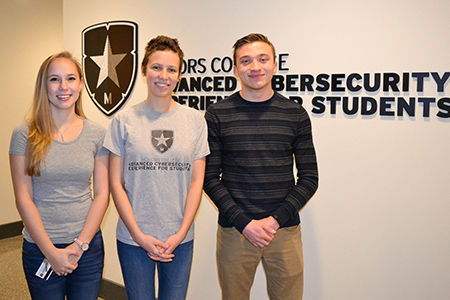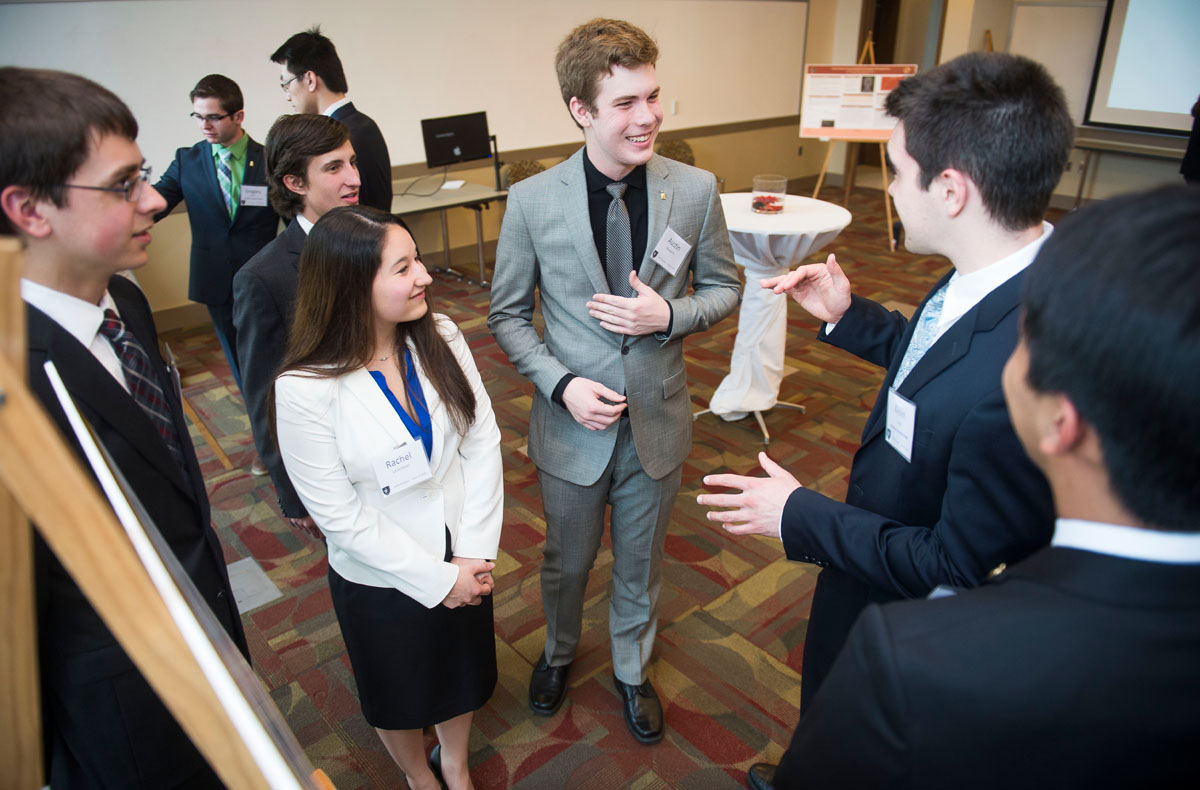News Story
ACES Recognized as a Sucessful Model for Partnership

The ACES program was recognized by Northrop Grumman C.E.O. Wes Bush as a successful model for partnership between business and academia. Bloomberg View's article featuring ACES is available below.
Last Friday, the Labor Department announced that the U.S. economy had enjoyed a record 76 consecutive months with job gains. Yet at the same time, the U.S. Chamber of Commerce reports that 5.6 million jobs remain unfilled because of a pernicious “skills gap” -- or mismatch between employers’ needs and workers’ abilities. In a Business Roundtable survey, 45 percent of C-suite executives say hiring is particularly difficult in so-called STEM fields, those requiring expertise in science, technology, engineering and math.
College graduates themselves are no less concerned: A national survey commissioned by Northeastern University found that just 14 percent of recent college graduates believe their education prepared them to work with artificial intelligence and robotics -- innovations poised to transform the American workplace.
It doesn’t take a Ph.D. in labor economics to conclude that business as usual is not working. To close the skills gap and keep our economy from stagnating, businesses and academia must join forces. For starters, we see four paths to partnership:
Modernized curriculums: For centuries, university course catalogs were like geological strata -- layers upon layers of academic offerings built on a faculty-centric view of the world. Given the pace of change today, faculty members must be willing to adapt their courses to provide the job skills and knowledge employers actually need. This doesn’t mean adopting a vocational model at top research universities; it simply means aligning what students learn with business imperatives.
One successful model is the University of Maryland’s Advanced Cybersecurity Experience for Students program. The nation’s first four-year undergraduate honors program in cybersecurity, ACES features a “living-learning” model in which students live together, take classes together and collaborate on multidisciplinary problems. Supported by partners such as Northrop Grumman, Amazon Web Services and the National Security Agency, ACES focuses on the team-building skills valued by industry that aren’t always taught in college. Students also get professional coaching and career advice directly from senior industry executives. Over time, it will demonstrate to companies in other fields how this sort of curricular collaboration can develop the talent pipeline
View the full article in Bloomberg View.
Published February 9, 2017






